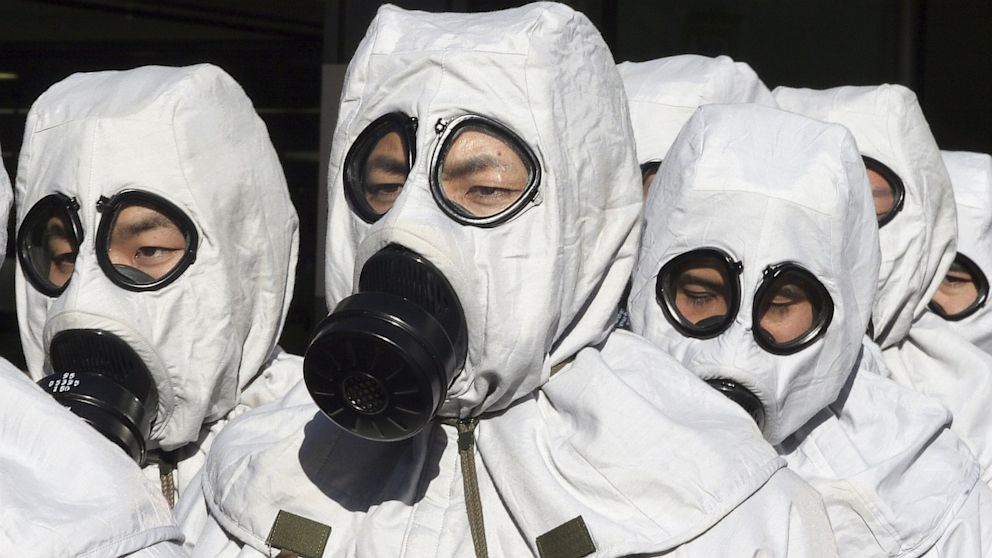The Surprising, Sordid Story of Sarin, Syria's Alleged Chemical Weapon
Nazi war criminals, US oil companies, test rabbits: the sordid story of Sarin

August 29, 2013— -- The United States and its allies moved fast in recent days to confirm that Syrian ruler Bashar al-Assad used chemical weapons on his own citizens as part of a civil war offensive that's killed an estimated 100,000 people.
Recent reports suggest Assad attacked civilians with Sarin, a deadly nerve agent that's been renounced by the international community.
While it's still unclear what future consequences Assad will face for the attacks, his weapon of choice has a vividly colored past. From Hitler's arsenal to Uncle Sam's stockpile, here's a look at the history of Sarin, one of the world's most feared chemical killers.
(Much of this information comes from the 2006 book "War of Nerves: Chemical Warfare From World War I to Al-Qaeda," by the late biochem weapons expert Jonathan B. Tucker. For more info, check the book out online.)
Also called GB, the nerve agent was declared a "weapon of mass destruction" by the United Nations in 1991, and its production and stockpiling were banned by the international Chemical Weapons Convention two years later. (Photo: Getty Images)
The Japanese terrorist cult Aum Shinrikyo produced its own Sarin in a $10 million dollar facility in the 1990s, using the agent in its gaseous form to kill 13 people on the Tokyo subway in 1995. Saddam Hussein was known to have used Sarin on Iranian soldiers and Iraqi Kurds before the first Gulf War.
Bashar al-Assad, Syria's dictator, is known to have stockpiled Sarin previously, which is one reason it's the primary focus in the Syria chemical attacks. (Photo: Getty Images)
In 1948, he was convicted of war crimes and crimes against humanity at Nuremburg and sentenced to eight years in prison. One prosecutor, disgusted by the light sentence, wrote a book about Ambros and his colleagues titled "The Devil's Chemists." (Photo: Keystone/Hulton Archive/Getty Images)
Before his death, Ambros also worked with Dow Chemical, and he advised a pharmaceutical company that marketed thalidomide, the infamous birth-defect-causing drug, to pregnant women. (Photo: U.S. Army)
"At this time," one U.S. general said, "the only safe course is to be prepared to defend ourselves and ready to use gas in overpowering quantities." (Photo: RIA Novosti/Wikimedia Commons)